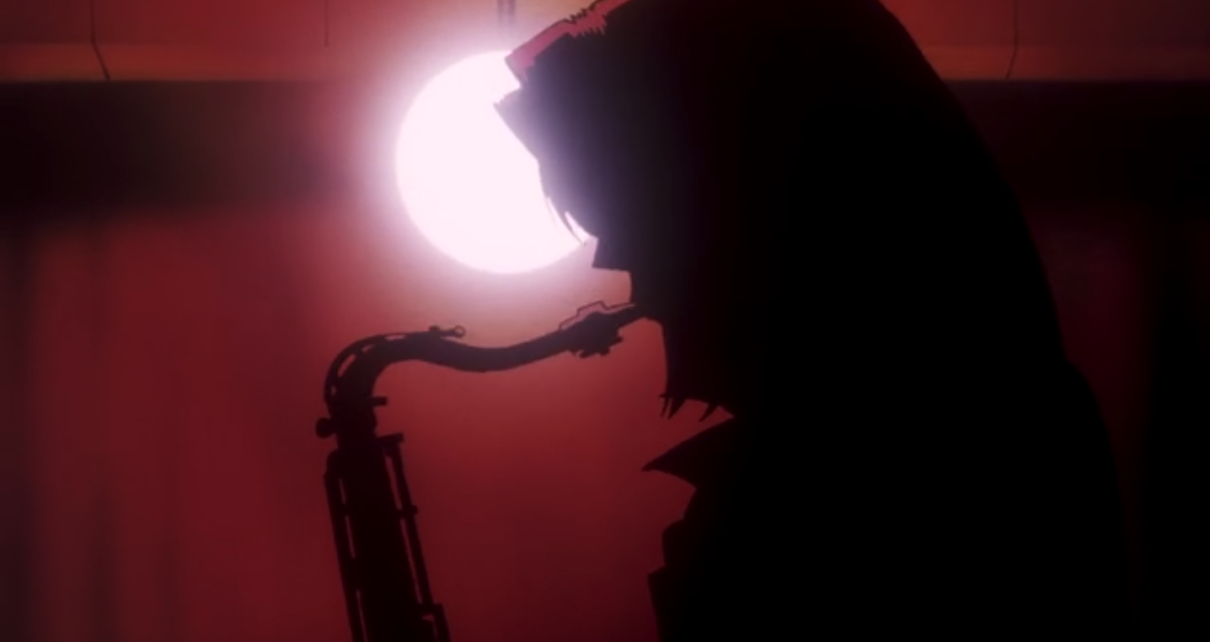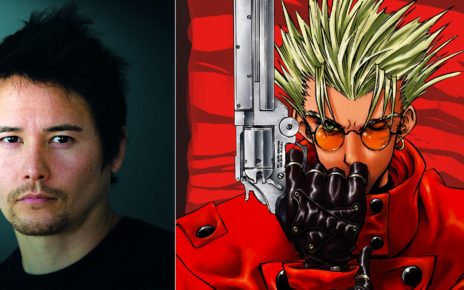Goodbye, So Long, Adieu

For one month, The Dot and Line is publishing essays, interviews, and discussions about each episode of Cowboy Bebop, which turns 20 this April.
Let it be known: I have taken the Clickhole quiz many a time, but even had I not, I would have known, as I have always known, that I am, indeed, a Big Jazz Boy. My dad was a professional saxophonist in a former life, and I picked up the horn when I was a teen and never looked back. We both played in big bands, and we both loved the wailing horns and jumping jives and hep steps and the works. I am also a Sad Jazz Boy. I grew up on Paul Desmond and Bill Evans and Chet Baker, all those mournful white boys playing sweet crooner tunes. I am also a Spiritual Jazz Boy. Pharaoh Sanders, to my mind, is the greatest musician of the 20th Century to fly below the pop culture radar.
So even without how stupidly great Cowboy Bebop is at everything it does, I would have loved the show for one reason and one reason only: the music. That is because Yoko Kanno is the Biggest, Jazziest Big Jazz Boy (and Girl, but please note: everyone is the Jazz Boy!) of all time. And the thing is, she does it all. Her jazz is big and blasting, to be sure—and the Japanese love their big blasting club jazz. (Ever listen to Soil & “Pimp” Sessions? You should.) But they like it melodic and brooding, too. (Ever listen to Ryo Fukui? You should.) And they also like it spiritual. (Ever listen to Uyama Hiroto? You should.) And Kanno does both of those just as perfectly.
Just listen to these four songs for proof: “Memory” and “Adieu,” “Goodnight Julia” and “Space Lion.” The first is a delicate music-box setting of a ballad that seems pulled from a Cole Porter musical, while the second is that same melody with a piano trio setting and a heart-flippingly husky and lyrical alto performance from singer Emily Bindiger. The third is a delicate ballad for piano and tenor sax, lonely and lilting, and the fourth is a rhythmic, African-influenced spiritual jazz reinterpretation of that same melody.
Two tunes. Four songs. All perfect. Yoko Kanno should be a household name—and I wish Evans and Baker had been alive to cover her work, because then maybe it would have been. She writes saxophone solos like she was born the daughter of Adolphe Sax and Cannonball Adderley both. Her music should be played for babies in their cradles. And don’t get it twisted: jazz, like Wu-Tang, is for the children.
On that note, let me just leave “Space Lion” here for you again, because it’s seven minutes of sublime sound. Play it at my funeral. Or better yet, get Pharaoh Sanders to cover it. I would die. Then play it at my funeral.

Thanks for reading The Dot and Line, where we talk about animation of all kinds. Don’t forget to for this article and follow us on Twitter and Facebook.





